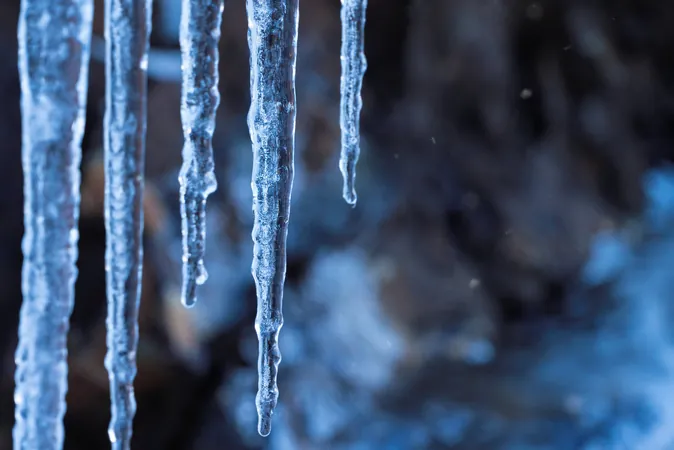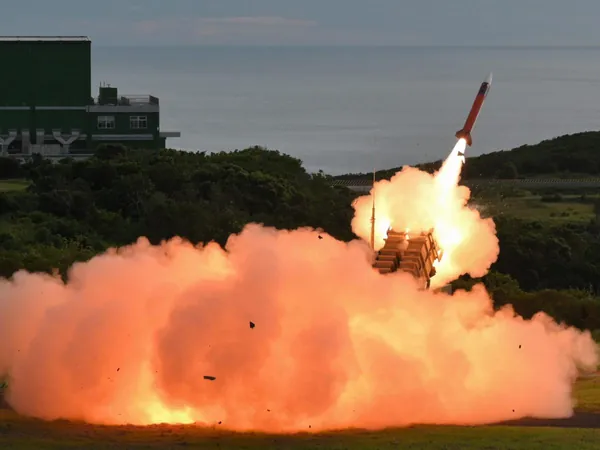
Freeze Your Way to Better Sleep? New Study Suggests Five Minutes in Extreme Cold Could Help!
2024-11-21
Author: Chun
A fascinating new study reveals that exposing yourself to extreme cold for just five minutes a day might enhance your sleep quality significantly! Researchers from the University of Montreal and the University of Poitiers have uncovered compelling evidence suggesting that this chilling technique, known as "cryostimulation," could potentially provide a solution for some individuals struggling with sleep issues.
Study Overview
The study examined the effects of daily cryostimulation on a small group of 20 healthy volunteers, comprised of 9 women and 11 men, all in their twenties. Over five consecutive days, these participants underwent a frigid experience inside a specialized chamber maintained at a staggering temperature of -130 degrees Fahrenheit (-90 degrees Celsius). To put this into perspective, this temperature almost matches the coldest recorded temperature on Earth, which was -128.6 degrees Fahrenheit in Antarctica.
Monitoring and Results
During the study, to ensure accurate results, participants abstained from alcohol, caffeine, and any substances that could alter their sleep patterns. They were monitored with wearable devices that tracked their heart rates, brain activity, and sleep architecture. To compare outcomes, participants repeated the same routines without the cold therapy after the first five days.
The results were intriguing! After undergoing the cryostimulation, volunteers reported a noticeable improvement in their sleep quality and duration, with an increase of about 7.3 minutes in deep sleep—the most restorative stage of sleep. However, it’s worth noting that the significant enhancements were primarily observed in female participants. While these trends appear promising, the researchers caution that the observed improvements are modest and based on a limited number of people.
Expert Insights
Olivier Dupuy, the lead researcher and an associate professor at the University of Montreal, stated, “While this study focused on individuals who generally sleep well, we believe cryostimulation could be particularly beneficial for those facing more severe sleep challenges.”
Future Research and Implications
This study is part of a broader intra-disciplinary project examining the multiple health benefits of cryostimulation. Prior research indicates that it could alleviate pain and inflammation and may benefit elite athletes, as seen during the recent Summer Olympics in Paris. Dupuy's team is eager to continue their research, with plans to publish further studies examining the impact of cryostimulation on sleep.
Caution and Considerations
While you may be tempted to rush to your local ice rink or even consider transforming your home into a freezer, it is wise to proceed with caution. The scientists emphasize that although the results are intriguing, larger trials are necessary to confirm these initial findings. If future studies corroborate the benefits of cryostimulation, it could pave the way for its adoption in clinical settings, including medicine, kinesiology, and physiotherapy.
Conclusion
So, before you consider extreme cold therapy, keep an eye on this fascinating research area. The possibility of harnessing the power of cold for better sleep may not be as far-fetched as it seems—just remember to bundle up!



 Brasil (PT)
Brasil (PT)
 Canada (EN)
Canada (EN)
 Chile (ES)
Chile (ES)
 España (ES)
España (ES)
 France (FR)
France (FR)
 Hong Kong (EN)
Hong Kong (EN)
 Italia (IT)
Italia (IT)
 日本 (JA)
日本 (JA)
 Magyarország (HU)
Magyarország (HU)
 Norge (NO)
Norge (NO)
 Polska (PL)
Polska (PL)
 Schweiz (DE)
Schweiz (DE)
 Singapore (EN)
Singapore (EN)
 Sverige (SV)
Sverige (SV)
 Suomi (FI)
Suomi (FI)
 Türkiye (TR)
Türkiye (TR)